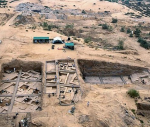You are here
Kazakhstan — 25 years of building the model of a nuclear weapon-free state
Aug 29,2016 - Last updated at Aug 29,2016
Kazakhstan’s senate, parliament and ministry of foreign affairs, and the Parliamentarians for Nuclear Non-Proliferation and Disarmament (PNND) are holding in Astana the international conference “Building a nuclear weapon-free world”.
The conference gathers leading parliamentarians, prominent politicians, diplomats and disarmament experts, as well as religious leaders and civil society representatives from around the world to discuss steps mankind needs to take to advance meaningfully towards the goal of global nuclear non-proliferation and disarmament.
The event coincides with the 25th anniversary of the closure of Semipalatinsk Nuclear Test Site. On this occasion, Kazakhstan President Nursultan Nazarbayev delivered a speech to commemorate the event.
Looking back to 1991, I wish to recall that after disintegration of the Soviet Union, Kazakhstan, as an independent state, inherited responsibility for the fourth largest nuclear arsenal after the United States, Russia and Ukraine.
Between 1949 and 1989, the Semipalatinsk Nuclear Test Site in eastern Kazakhstan witnessed 456 nuclear tests, including 340 underground and 116 atmospheric explosions. These were roughly the equivalent of 2,500 Hiroshima atomic bombs.
The Soviets conducted these tests without any regard for the effects on the local environment or the almost quarter of a million inhabitants of the area.
The first Soviet nuclear weapon test at the Semipalatinsk site was conducted on August 29, 1949. It took over 450 more Soviet nuclear weapon tests before the site was closed at the urging of the Kazakhstan people and Nazarbayev, on August 29, 1991.
According to the UN, over decades, the tests negatively affected the health of more than 1.5 million Kazakhs, including many who, to this day, in the first and the second generations, suffer early death, lifelong debilitating illness and horrific birth defects.
The closing of the nuclear test site and Kazakhstan’s voluntary renunciation of the fourth largest nuclear weapons arsenal in the world is considered a profound contribution to the global nuclear disarmament process.
At Kazakhstan’s initiative by the UN, August 29 has been proclaimed the International Day Against Nuclear Tests. The date is now commemorated annually worldwide.
Furthermore, Kazakhstan initiated the Universal Declaration on the Achievement of a Nuclear Weapon Free World, adopted by the UN General Assembly in December 2015.
The present conference also highlights Nazarbayev’s recent “Manifesto”, titled “The World. The 21st Century”, in which he offers a global strategy to destroy the virus of war and eliminate the threat of nuclear terrorism.
Moreover, at Kazakhstan’s initiative, the Central Asian Nuclear Weapon-Free Zone Treaty Agreement was signed on September 8, 2006. On August 27, 2015, the International Atomic Energy Agency and Kazakhstan signed an agreement to establish the IAEA Low Enriched Uranium Bank.
This year, Kazakhstan marks its 25th independence anniversary. Over these years, Kazakhstan has developed into a strong, dynamic, modern state under the leadership of the president of the republic.
Through unity, solidarity and determination, our country has achieved significant progress in economic and social development.
Kazakhstan entered a relatively new stage in nation building, where transition will be determined by the five institutional reforms and the 100 concrete steps proposed by the head of state.
The basic vector of the national plan has become a national idea, “Mangilik El”, which will allow forming a future United Nation that will lead Kazakhstan into the top 30 most developed countries in the world by 2050.
Nazarbayev also signed a decree establishing the Assembly of People of Kazakhstan, which ensures the consolidation of the interests of ethnic groups on the basis of partnership between government and civil society to achieve effective inter-ethnic cooperation.
During the 25 years of independence, Kazakhstan has attained remarkable achievements.
The country became an authoritative full-fledged member of the world community.
In 2010, Kazakhstan chaired the Organisation for Security and Cooperation in Europe; in 2011-2012, the country chaired the Organisation of Islamic Cooperation; in 2017, Astana will host “EXPO-2017”, an international exhibition themed “Future energy”.
Moreover, Kazakhstan was elected as a non-permanent member of the UN Security Council for 2017-2018. Kazakhstan’s candidacy was supported by 138 countries out of 193 UN member states who voted.
To conclude, I strongly believe that our joint efforts will serve to build global peace and security.
The writer is the ambassador of Kazakhstan to Jordan. He contributed this article to The Jordan Times.











